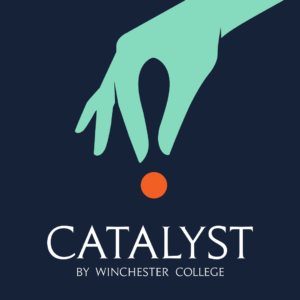If you are currently considering applying to either Cambridge or Oxford, one question that will probably cross your mind at some point is ‘which college should I apply to?’.

It is important to recognise firstly that no matter what college you end up in, even if it is not one of your choice either because you made an open application to Cambridge or because you got pooled, you will end up liking it there because you will feel like you are an integral part of a community. Your accommodation, dining hall/cafeteria, communal spaces and friends will all help make your college an enjoyable place for you. Nonetheless, there are many different factors you can consider while researching the different colleges to help you decide on one to apply to.
- Location

If you want to spend less time travelling between places, you might want to mainly consider colleges located in central locations. When doing your research, you should assess how far away your college is from locations such as the city centre, your lecture halls, the nearest supermarket, your laboratory if you are studying sciences, and sports halls and boathouses if you plan to get involved in sports.
2. Year Group Size
There is a lot of variety in college year group size. Some smaller colleges may only have around 70 students in a year whereas larger colleges can have a few hundred. You should consider what type of environment you prefer. Will you prefer being in a closer, tight-knit community where you know everyone else in your year, or will you prefer being in a community where you will not know everyone well but get the chance to meet new people more often?
3. Accommodation Availability
Some colleges do not have the capacity to provide accommodation to all of their students within college grounds for all their undergraduate years. Sometimes for 2nd or 3rd year you will be provided accommodation but it is located about 10-20 minutes’ cycle from the main college grounds. This would mean you would have to cycle to go to supervisions in college or go to the dining hall. Some colleges in Oxford do not provide accommodation for all years of study and you will be required to find your own accommodation for certain years.
4. Bursaries and Financial Support
Policies regarding financial support differ between colleges. Some colleges have more money to spend per student and this can make a real difference when it comes to grants such as out-of-term time accommodation grants or travel grants. This can also affect academic life through the form of book grants which can cover some of the cost of buying textbooks, or research project grants. Some colleges even have a budget to arrange activities such as tritermly port nights, puppy therapy during exam term and weekly cake and drinks de-stress sessions!
5. Facilities
The type of facilities that each college provides can differ greatly. Each college can have a few or all of the following facilities: music practice rooms, theatre, on-site gym, sports venues, and boathouse. The amount of one type of facility may differ as well. For example, a college may only have one sports venue – a squash court, but some others may have tennis courts, a swimming pool and basketball courts as well. If extra-curricular activities are important to you, you can narrow down your college choice based on what facilities you require for a fulfilling life outside of the classroom.
6. Societies and Extracurricular Activities
If you are interested in getting involved with student societies, the arts or sports, you can research about what societies are available at different colleges and at what scale. For example, if you are very interested in politics and one college has a politics society that has previously invited speakers you are interested in, that may be something that sways you.
7. Admission statistics

Many students like to look at admission statistics to try and maximise their chances of getting an offer. It can be useful for knowing how many offers specific colleges typically give out for a subject every year. However, the admission statistics are not always accurate or representative. Just because fewer people applied for your subject the previous year does not mean very few people will apply in your year. Other applicants may also be looking at the same statistics and apply to that college because there were fewer applicants in the previous year, just like you! You also do not know how many applicants will be pooled or reallocated to your college because of the open application system in your year, as there is no trend for this. There is no minimum quota that colleges have to reach for each subject, so if they simply do not believe there are worthy candidates in a year, then they can choose not to give out offers to any, or give offers to fewer candidates than they normally do.
Everyone will have their own set of priorities, so it is important to decide on a college based on what you think is best for yourself, not the college that your friend or older sibling has applied to. For example, you may be a fitness guru so having a state-of-the-art gym and sports fields within the college grounds is absolutely crucial, or you may prioritise more practical considerations such as close proximity to the supermarket or your lecture hall. Do some research into the different college options and narrow your list down by considering the factors listed above.
At the end of the day, all colleges have their advantages and disadvantages. You will likely love your college no matter where you end up.
Best of luck with your college selection and the rest of the application process!

To find out more about Ampla Education’s university application services, contact us at info@ampla-edu.com
________________________________________________________________
Educated at the Chinese International School, Cara obtained a Bachelor of Arts degree in Law from the University of Cambridge and is currently studying for a Masters in Law. While at Cambridge, she was the Treasurer of the Cambridge University Law Society and was heavily involved in performing theatre. Cara has worked at the Cambridge University Law Faculty Open Day and as a Peterhouse Student Ambassador as she enjoys advising and helping prospective university applicants with the application process.
________________________________________________________________
© Ampla Education – Unauthorised use of this material without permission is strictly prohibited. Excerpts and links may be used, provided that full credit is given to Ampla Education.



















